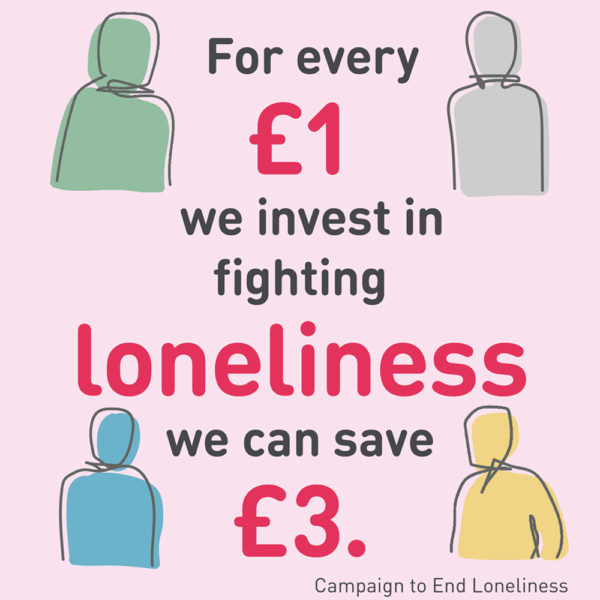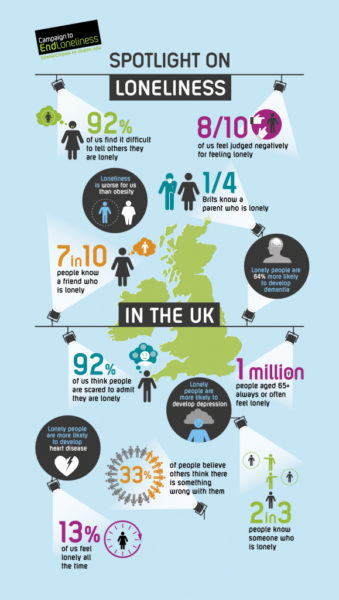We could start this post by citing the millions of people who are lonely in the UK. Or we could give you a definition of loneliness or state the percentage of people who are scared to admit they’re lonely. But many of you will already be familiar with these facts. You’ll appreciate how deeply loneliness can be felt by a range of people. In fact, many of you will know first-hand what it feels like to be lonely.

So we’re not going to start our post this way. Instead, we’re going to take inspiration from a keynote speech made by Lord Victor Adebowale CBE who spoke at a Loneliness Action Group Conference earlier this year.
He invited the audience to think about friendship: what was the spark to some of our closest friendships? Where did we meet? What did we talk about? When did the magic happen, when an acquaintance turned into a friendship? Crucially, how can we work this magic for other people?
Talking about a shared interest, local affairs, or even the weather can mark the start of a blossoming connection. As you begin to spend more time together, you feel happy, able to share your feelings, and most importantly, feel understood by someone.
If we’re helping people to feel less lonely, we need to create the right spaces and conditions which provide the opportunity for a spark to lead into the magic of a friendship. When we’re talking about tackling, fighting, or combatting loneliness, what we’re really doing is bringing people together in meaningful ways.
And that’s where government has to play a leading role.
We have a Minister, a strategy, and cross-departmental commitments to help those who are lonely. You only need to take a look at Loneliness Minister Baroness Barran’s Twitter feed to see the range of initiatives government is supporting. Whether through befriending schemes, chatty benches, social prescribing, technological interventions, or improving community spaces, different sectors are joining together to change people’s lives.
However, more work needs to be done. We can’t afford for loneliness funding to dwindle, just at the time when we’re building momentum across a range of government departments and sectors. From a health perspective, tackling loneliness is a no brainer. By helping to alleviate loneliness levels, you reduce the likelihood of developing other health conditions (depression, anxiety, or cognitive decline for example). There’s also a strong economic case too. For every £1 invested in loneliness it saves £3. Investment in loneliness is a win win for all.
Let’s work together to make sure that loneliness is not forgotten as a critical election issue.
Contact your MP. Tweet about loneliness with the hashtag #GE19. Go out and meet your parliamentary candidates and ask what commitment their party is making to invest in loneliness. As Lord Adebowale told us at the conference, any public service that doesn’t design out loneliness wastes public money. Let’s work to ensure that the next government invests in all of our futures.
About WaveLength
WaveLength is the UK’s leading loneliness charity giving technology to those most in need. Since 1939, we’ve helped people living in the poorest communities to fight loneliness, by giving technology to individuals and organisations to help connect people to the world.
We help people who have poor physical and mental health, those who have previously been homeless or trafficked, or are survivors of domestic abuse.
Our unique experience as the oldest, and only, loneliness and technology charity gives us a range of perspectives on how some of the most vulnerable people in society use technology to make a positive difference to their lives.
Interested in what you’ve read? Have a conversation with us: give us a call or e-mail us.


